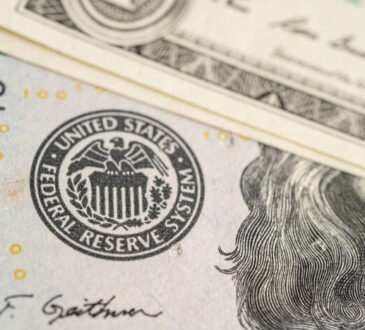
The is softer and pro-cyclical currencies are following the yuan higher after news that China is preparing a CNY 2tn rescue package for the stock market. The BoJ revised inflation expectations lower but signalled further progress towards the target, keeping anticipation for a hike in June alive. We expect New Zealand CPI to be soft tonight
USD: China and Japan in Focus
The dollar has been mostly moved by developments from outside of the US since the start of the week. China remains the centre of attention before key central bank meetings in the developed world. Risk sentiment was boosted overnight as the Chinese government is reportedly considering a large CNY 2tn package to support the struggling stock markets. The rescue plan should be mostly targeted to the stock exchange, which has sharply underperformed global equities of late. This is a strong message that conveys Beijing’s intention to artificially support Chinese markets in spite of the deteriorating economic outlook in the region, and it is reported that other measures are under consideration.
It does appear a temporary solution, though. Ultimately, stronger conviction on a Chinese economic rebound is likely necessary to drive a sustainable recovery in Chinese-linked stocks. For now, the FX impact has been positive; has dropped to 7.16/7.17 and we are seeing gains being spread across pro-cyclical currencies as safe-haven flows to the dollar are waning.
Doubts about the impact of Beijing rescue package’s effects beyond the short-term automatically extend to the FX impact. It does seem premature to call for an outperformance of China-linked currencies (like AUD and NZD) and softening in the dollar on the back of this morning’s headlines.
Another important development in Asian markets overnight was the Bank of Japan policy announcement. In line with our expectations and market consensus, there were no changes to the yield curve control, and forward guidance remained unchanged.
Inflation projections were revised lower from 2.8% to 2.4% for the fiscal year starting in April. The revision was mostly a consequence of declining oil prices, and the inflation path continues to show an overshoot of the target for some time.
All this was largely expected, and markets are focusing on Governor Kazuo Ueda’s claim that Japan has continued to inch closer to the inflation goals, keeping expectations for an eventual end to the ultra-dovish policy stance sometime this year. The yen is experiencing a rebound which is likely boosted its oversold conditions. Money markets currently price in a 10bp rate hike in June. Extra help from a declining USD this morning might push a bit lower (below 147) today, but we suspect that markets may favour defensive USD positions as the Fed meeting approaches.
Domestically, the only release to watch today in the US is the Richmond Fed Manufacturing index, which will give some flavour about the state of the sector ahead of tomorrow’s S&P Global PMIs. DXY may stabilise slightly below 103.00 once the China-led risk rally has settled.
EUR: Benefits from Better Risk Sentiment
The eurozone consumer confidence and the ECB lending survey are in focus today as markets await tomorrow’s PMIs and the European Central Bank’s decision on Thursday. We summarise our expectations for FX and rates under different scenarios in January’s ECB Cheat Sheet.
jumped after overnight news out of China, taking the pair closer to its short-term fair value model of 1.0980 (in our calculations). The direction of travel today for the pair will mostly be a consequence of whether Western stock indices will be able to keep the positive mood shown by Asian equities and FX. We still deem a sustainable rally to levels above 1.100 as unlikely and do not see the ECB meeting as a game changer for the euro.
NZD: We Expect 4Q CPI at 4.6%
We recently updated our estimates for the fourth quarter CPI in New Zealand, and expect a 0.4% quarter-on-quarter print which translates into 4.6% year-on-year. Consensus is centred at 4.7%, signalling that expectations are for a marked undershot compared to the latest RBNZ fourth-quarter CPI projections at 5.0%.
The Reserve Bank of New Zealand delivered a hawkish surprise at the November meeting as it signalled no rate cuts until mid-2025 and threatened more tightening if inflationary pressure increased. We think that today’s CPI print will force some softening in the RBNZ’s stance when it announces monetary on 28 February. New projections will be released at the February meeting, and softer than expected growth and (in our view) inflation – as well as a dovish repricing in global rate expectations – may well prompt a revision lower in the rate path.
Markets are already pricing in 95-100bp of easing by the end of the year in New Zealand, meaning that NZD is probably more likely to be affected by stronger data and hawkish RBNZ surprises than by a data-miss/dovish surprise combination. For this reason, we think that will not get hit hard as the RBNZ pivots to a more dovish stance and still favours the pair to trade higher from the second quarter on the back of a weaker USD and improved risk environment. Today, the rebound in China’s sentiment can help absorb the impact of softer inflation for NZD.
CEE: Fair Level Reached Before Next Move
Yesterday’s data published in Poland was fairly mixed, indicating cautious signs of recovery in industry and construction but weaker growth in retail sales. The general economy gained momentum in the fourth quarter of last year but the pace slowed after the third quarter. December is again hopeful that a recovery is coming. Today’s calendar is essentially empty except for Hungarian wage data. It gets more interesting in the bond space. In Poland, the first auction will take place today after the recent sell-off and political tensions. At the same time we saw a hawkish turn from the National Bank of Poland. So today’s auction will test where demand is after recent events.
The FX market opened the week in CEE in line with our expectations yesterday. PLN managed to stabilise around 4.360 per euro and for now we don’t see too much bias either way until we see more progress on the political side. remains in the 24.700-800 range where it is likely to remain in the days ahead, unless the CNB steps in with bolder statements than we have seen so far. has moved up into our 383-384 range and given the rate pricing we think this will be the level ahead of the National Bank of Hungary’s meeting next week.
Disclaimer: This publication has been prepared by ING solely for information purposes irrespective of a particular user’s means, financial situation or investment objectives. The information does not constitute investment recommendation, and nor is it investment, legal or tax advice or an offer or solicitation to purchase or sell any financial instrument. Read more



